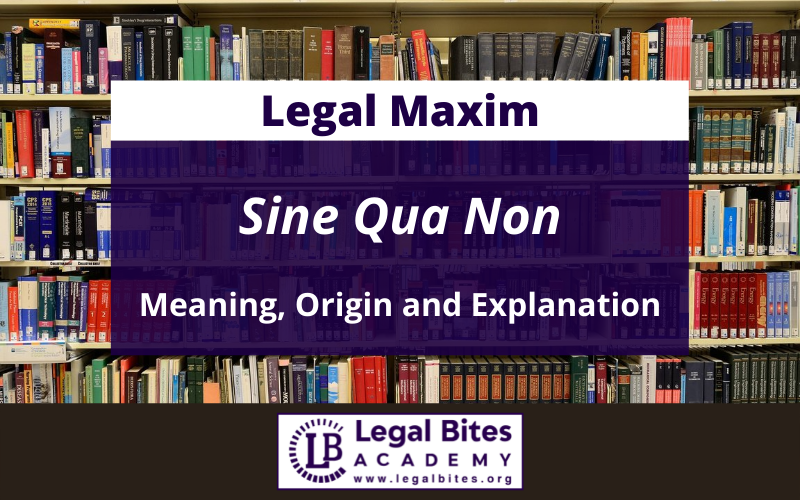Ultra Vires: Origin, Meaning and Explanation
This article titled ‘Ultra Vires: Origin, Meaning and Explanation’ is written by Sahajpreet Bhusari and discusses the legal maxim of Ultra Vires. I. Origin and Meaning Ultra vires is a legal term of Latin origin. In Latin, the maxim literally means, ‘beyond the powers’[1]. II. Explanation The term refers to activities made by government entities or businesses that go… Read More »
;
This article titled ‘Ultra Vires: Origin, Meaning and Explanation’ is written by Sahajpreet Bhusari and discusses the legal maxim of Ultra Vires. I. Origin and Meaning Ultra vires is a legal term of Latin origin. In Latin, the maxim literally means, ‘beyond the powers’[1]. II. Explanation The term refers to activities made by government entities or businesses that go beyond the authority granted to them by laws or corporate mandates. A constitution is referred to as the scope...
This article titled ‘Ultra Vires: Origin, Meaning and Explanation’ is written by Sahajpreet Bhusari and discusses the legal maxim of Ultra Vires.
I. Origin and Meaning
Ultra vires is a legal term of Latin origin. In Latin, the maxim literally means, ‘beyond the powers’[1].
II. Explanation
The term refers to activities made by government entities or businesses that go beyond the authority granted to them by laws or corporate mandates. A constitution is referred to as the scope of authority in legal terms when referring to the activities of government bodies (e.g., legislatures).
Generally, it only applies to activities carried out beyond the scope of the doer’s legal authority. Intra vires, which means ‘inside the powers,’ is the polar opposite of ultra vires. It indicates that if someone has legal permission to do something and acts within a certain authority, they are operating intra vires.
III. Application
Historically, the idea of supra vires has been invoked to limit a government entity’s authority. Ultra vires is a legal term that refers to a violation of a statute’s boundaries.
Every business has a “Memorandum of Association of Firm,” which is the company’s constitution, according to company law. It specifies the company’s internal and external aims, authorities, and regions of activity.
The Memorandum acts as a framework and guidance for the company’s leaders to ensure that they understand the limits of their own authority and what borders they cannot and in fact, should not exceed. The “ultra vires philosophy” refers to the company’s dedication to honouring its Memorandum.
IV. Illustrations
The method for appointing directors to a company’s board of directors may be outlined in the company’s constitution. If board members are appointed or dismissed without according to the processes, the acts are considered ultra vires.
When government entities or agencies operate, laws, including a constitution, dictate the scope of their authority. If government branches go beyond their defined authorities, their activities may be declared supra vires, and they may suffer legal consequences.
V. Case Laws
The Allahabad High Court cited the preceding expression in Anand Prakash and Anr. v. Assistant Registrar, Co-Operative Societies[2], holding that “the word ‘extra vires’ simply means “beyond powers” or “lack of power.” The word “ultra vires” refers to something other than “illegality.”
In the broadest meaning, everything that is not permitted by law is illegal; yet, in its narrower definition, “illegal” refers to the feature that renders the act itself unlawful. It refers to a person’s ability or power to perform that action. Conduct may be unlawful because it is banned by law, or it may be criminal for other reasons such as fraud, undue influence, or being contrary to public policy.”
The Madras High Court defined ultra vires as where a particular practice or authority surpasses lawful power, encroaches some legal prohibition, is either inept or mala fide, or, becoming honestly quasi-judicial, violates some justiciable norm, it may be quashed; and not otherwise.
References
[1] Ultra Vires, Available Here.
[2] AIR 1968 All 22.





